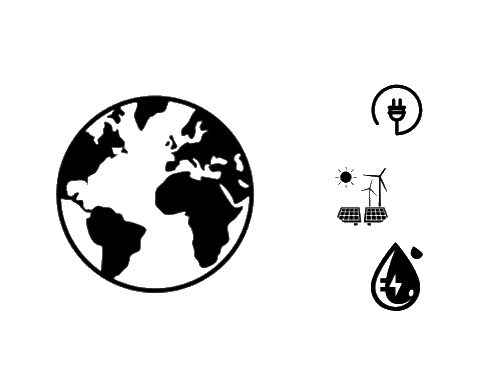Summary of the Evaluation of Natural Resource Canada’s Energy and Climate Change Policy Program
About the Program
The Energy and Climate Change Policy (ECCP) Program provides policy advice to the Minister of Natural Resources, senior government officials, and other stakeholders to inform decision-making on matters related to energy and climate, including the future pathway for Canada’s energy sector. It serves as the federal government’s central energy policy hub in the transition to a low-carbon, sustainable, inclusive and competitive resource economy. Its expenditures over the period of evaluation (2014-15 to 2018-19) were approximately $42 million.

What the evaluation found

Program design
The evaluation found that the Energy Policy Branch’s understanding and articulation of the ECCP Program’s design continues to evolve and improve. Overall, the evaluation confirms the revised results logic for the ECCP Program and expands on this with the objective of furthering the development of the program’s theory of change (i.e., how the policy function is expected to bring about its desired results).

Relevance
The evaluation found the ECCP Program is relevant to federal government and NRCan priorities for energy and climate change. Recent revisions to the Program’s logic model now focus outcomes more clearly on advancing Canada’s low-carbon energy and climate change priorities, but there is still a need for further clarification in some areas, such as the extent to which program priorities should include climate change adaptation.

Program delivery
The evaluation found that there is evidence of effective program delivery, but with some room for improvement. Specifically, we found that:
- Process Management - There is evidence of effective process management in response to stretched resources, with human and financial resources allocated as required to address priorities. However, these resources may not be aligned with current or future work demands given the increasing number and scope of federal energy and climate change initiatives.
- Quality of Policy Products - There is evidence that the ECCP Program produces quality policy products that are neutral and evidence-based. The ECCP Program is also working to launch the Canadian Centre for Energy Information, which is expected to address data gaps in the evidence base required for stakeholders to make informed decisions on the transition to a low-carbon energy future.
- Stakeholder Engagement – As Canada’s low-carbon energy transition cannot be achieved without collaboration, stakeholder engagement is thus fundamental to the effectiveness of the ECCP Program. There is evidence that the ECCP Program’s policy products are reaching target audiences, but external factors (e.g., relationships between governments) impact the extent to which these products influence stakeholder perspectives or result in concrete actions. The ECCP Program also works to engage stakeholders and be inclusive of stakeholder perspectives in key policy exercises, but some stakeholders (particularly underrepresented groups) may lack the capacity or adequate opportunities to participate. While we found Generation Energy – “the single biggest consultation on energy in the history of Canada” – has become a foundation for NRCan’s advice to the government on how to advance Canada’s low-carbon energy transition, stakeholders could not easily identify how specific recommendations link to concrete actions.
- Policy Environment – The extent to which the policy environment is supportive of the ECCP Program and its outcomes is a key external factor impacting on program delivery. While the evaluation identified no issues related to this factor with respect to program delivery, it notes that policy development within the ECCP Program (as with all policy programs) is largely influenced by government priorities, which can change or evolve quickly depending on the policy environment.
- Relative Advantage – The motivation or desire of internal and external stakeholders to use the ECCP Program’s advice and analysis in decision-making also assumes that there is a real or perceived advantage to be gained from adopting the resulting policy, decision or practice. The ECCP Program currently plays an important role in understanding and integrating stakeholders’ sometimes polarized views to develop responsive policy options or solutions. Moving forward, its policy advice must continue to recognize the inherent tension between priorities for energy and the environment and actively identify opportunities to bring the two together.
Recommendations and management response
| Recommendations | Management Response and Action Plan |
|---|---|
|
Agreed. The ECCP Program’s PIP will be updated. This update will include a revised logic model, theory of change, and at least one indicator that is more relevant to measuring meaningful program performance. As the indicator is more experimental than in previous years, results will be tested and possibly adjusted over time based on feedback. Due date: December 31, 2020. |
|
Agreed. In 2020-21, LCES developed stakeholder engagement plans for individual policy priorities, including: the development of a hydrogen strategy and of a Small Modular Reactor action plan; consultations on radioactive waste management. Starting in 2021-22, LCES will include, as part of its annual business plan, a stakeholder engagement plan which will reflect the elements identified in the recommendation. This overall stakeholder engagement plan will provide an integrated approach to managing these activities within the context of the broader priorities of the sector. Due date: August 31, 2021. |
|
Agreed. Following the departmental reorganization that created LCES in 2019, the new Sector undertook a review of its operations which led to a reorganisation of the Branch, which was announced in June 2020. The reorganisation included the integration of the Energy Policy Branch with the international functions of the International Energy Branch, in recognition of the evolving and transforming policy space in which the Program works. A review of the operations of the new Energy Policy and International Affairs Branch is currently underway to ensure resources and tools are well aligned across its various work areas. This review will result in a plan to ensure branch capacity is aligned with its activities, including in light of its role to coordinate the implementation of NRCan’s measures in support of the government’s Strengthened Climate Plan. Due date: June 30, 2021. |
|
Agreed. The Program plays a key role in advancing the government’s priorities related to the transition to a low-carbon economy and addressing climate change, which were informed by the Generation Energy process and recommendations. The Program will develop proposed approaches to communicate to stakeholders and the public how Generation Energy informed various elements of the government’s Strengthened Climate Plan. Due date: June 30, 2021. |
About the Evaluation
The evaluation covers the period from 2014-15 to 2018-19. The objective of this formative evaluation was to examine the design and delivery of the ECCP Program. In 2018, NRCan’s Audit and Evaluation Branch worked in close collaboration with the Energy Policy Branch to develop an innovative approach to the evaluation of this policy program. This evaluation is consistent with the requirements of the Treasury Board Policy on Results (2016). Details on specific evaluation questions, methods and limitations are found in the full report.
Page details
- Date modified: